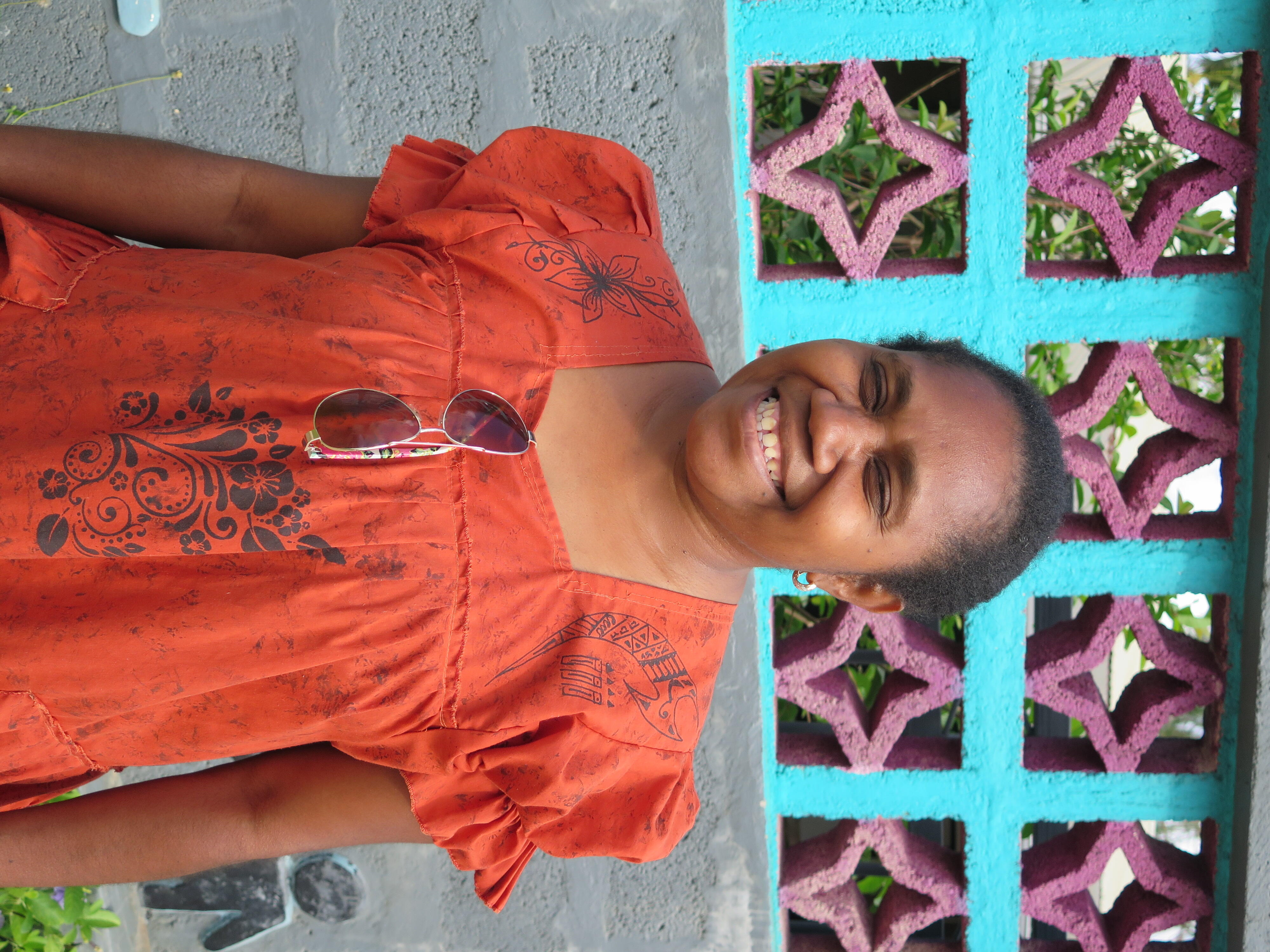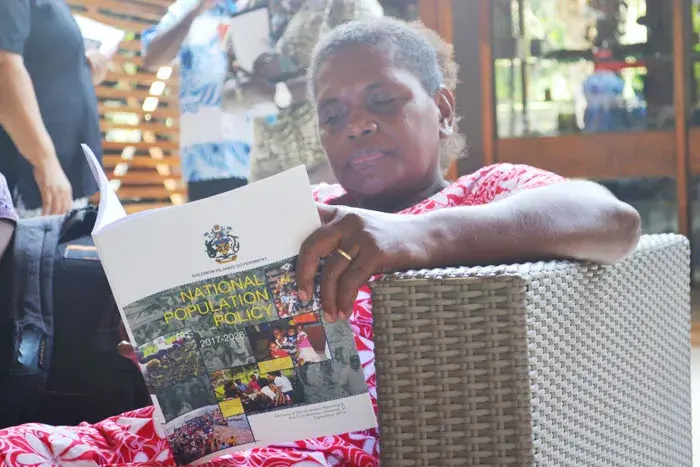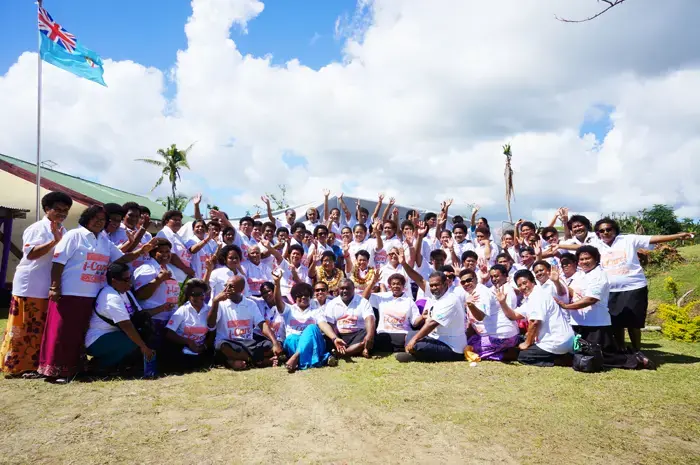In Vanuatu, a country where all ministers and members of parliament are male, and the vast majority of Chiefs are male, a woman being recognised as a leader is rare. The Ministry of Health is no exception, the director-general and all three directors in the ministry are male.
Susan is the lead for Reproductive, Maternal, Newborn, Child and Adolescent Health (RMNCAH) in the Sanma Province of Vanuatu. She is dual-qualified, as a nurse and a midwife, and has worked across several health facilities in Sanma, including in Santo bush, for more than 17 years before moving into Luganville town, giving her an unrivalled insight into the communities she serves. In her current position, she is the leader of the coordination, development and improvement of services covering immunisations, maternal and child health (including emergency care), family planning, nutrition, and adolescent health, among others. Her role focuses on leading RMNCAH service development training and supervision across the 43 health facilities in Sanma province.
2020 brought big changes. With the impact of a major category five tropical cyclones including gusts over 270km/hr, many schools and health facilities in Sanma were destroyed, and the threat of covid-19 was hanging over the country. Her job changed totally as a result. She was responsible for coordinating the emergency operations committee, simultaneously organising both the response and preparedness, with challenges of diverting attention away from her usual role and the vulnerable populations she usually targeted. Where she would normally do school outreach sessions, this was no longer possible as schools were destroyed and closed as a result of the cyclone, making reaching children and young people even more challenging. She had to restrategise, focusing on rebuilding the cold chain, conducting outreach services to communities, particularly focusing on young people, and persons with a disability, who often struggle to access services.
Her midwifery background helped her to see the needs of women, children, adolescent’s families in the emergency, recognising how they are responding to ensure that needs are covered as best they can be. Water, shelter, power, physical safety, and food to eat became priorities above and beyond health, and the needs of women, including pregnant women, were largely ignored by families and communities, impacting maternal health as so much attention was focused on other issues. In the interests of replanting crops to grow food to eat, women were often not allowed to leave the land to access RMNCAH services, as crops are so critical to the family’s future. The school closures then also led to women taking on the main childcare role, with cultural norms remaining that the mother stops work to take care of the children. People living with a disability were made more vulnerable as a result of the cyclone, access to services became even more challenging, and vulnerability to abuse increased.
Susan successfully advocated for funding to conduct RMNCAH outreach in the aftermath of the cyclone. In partnership with the Vanuatu Family Health Association, her team went across Santo, providing services, raising awareness, and promoting health in some of the toughest conditions.
As a woman, coordination was problematic; gender still emerges as a hurdle. ‘It’s challenging. When we are here, some of the men who are here don’t listen, because we are women.’ Key persons attending meetings would first see if her male colleague was present, to see if they should stay for the meeting.
To help to learn from the response, and to advocate for further development of RMNCAH, she wants to take the initiative to use the data from the hospital, and interviews of mothers to convince leaders to recognise and prioritise the needs of women, girls, and families in the first response of future disasters, as well as ensure they see the role she and other female leaders and colleagues are playing across the spectrum of the humanitarian response.





